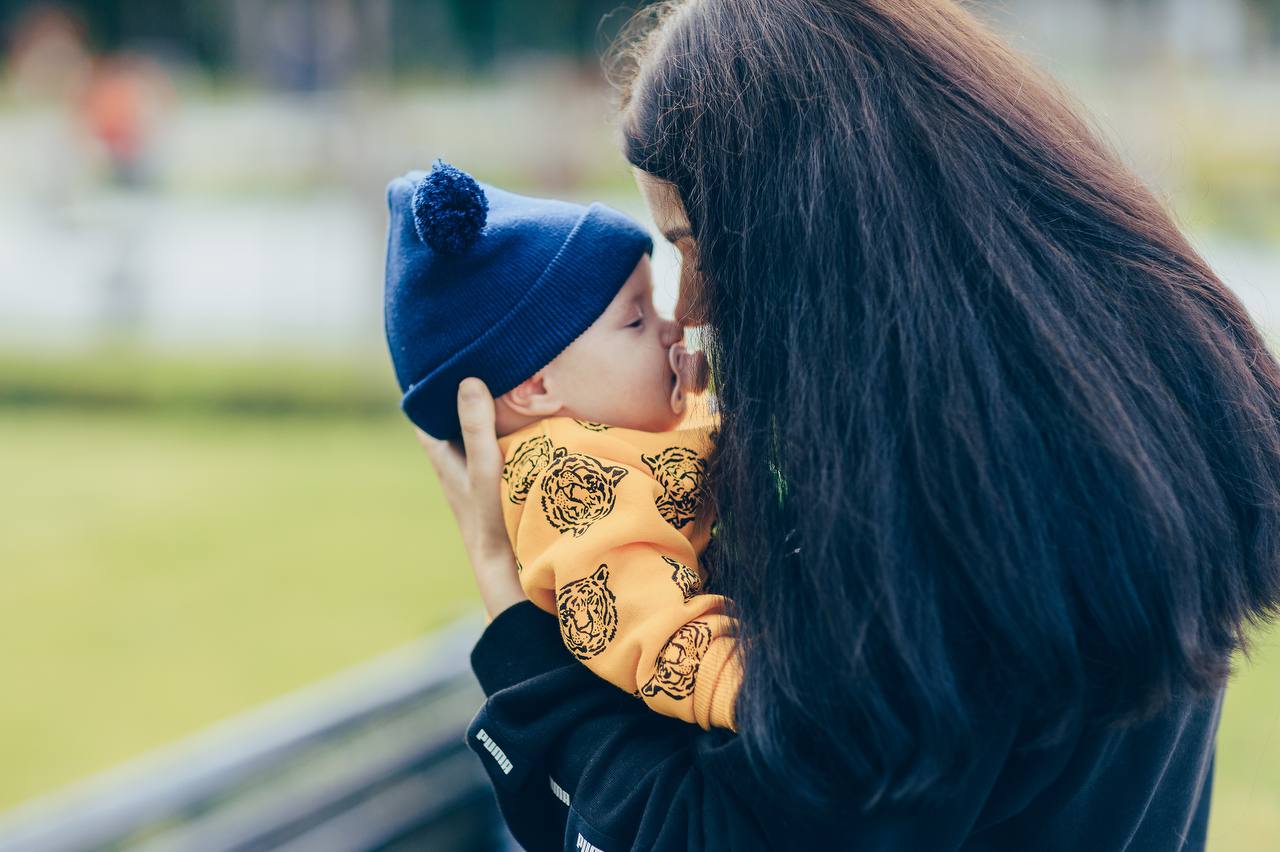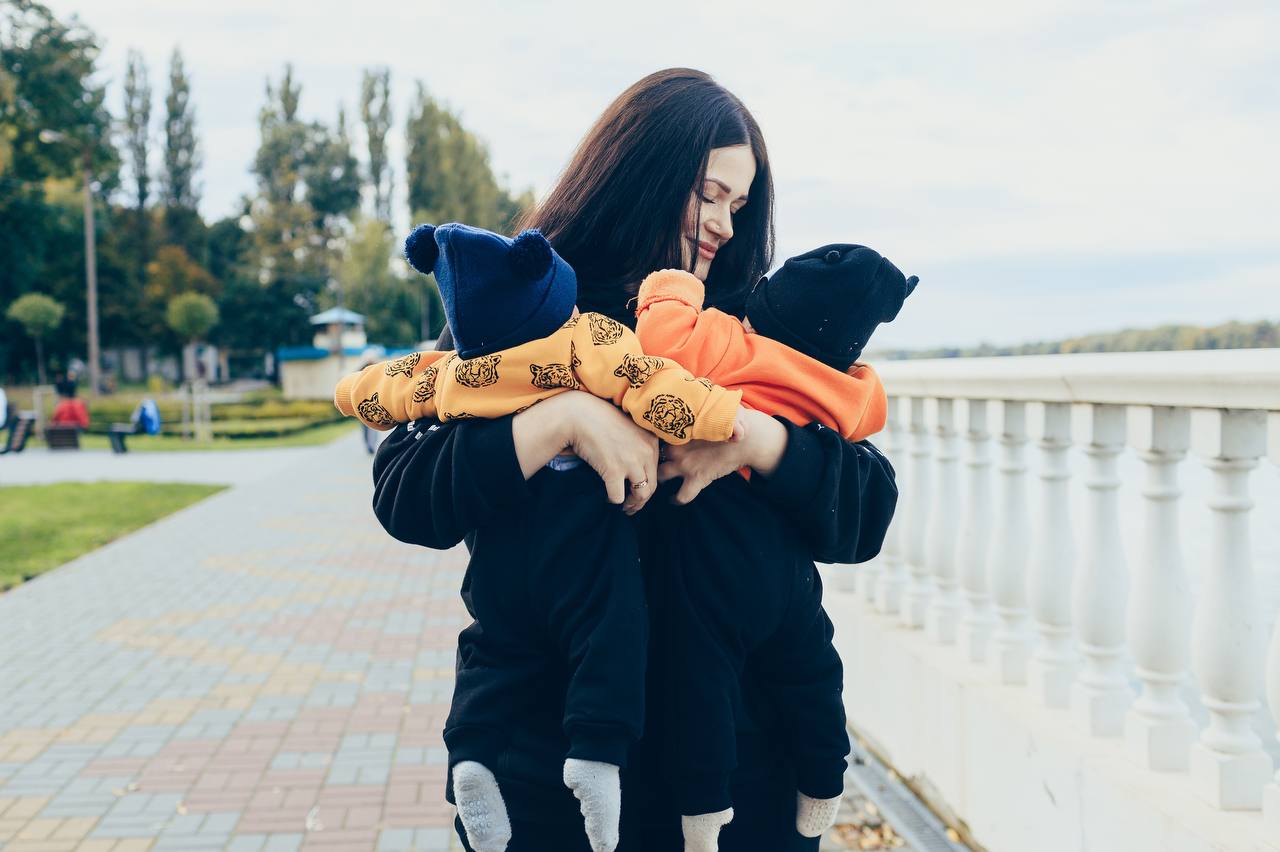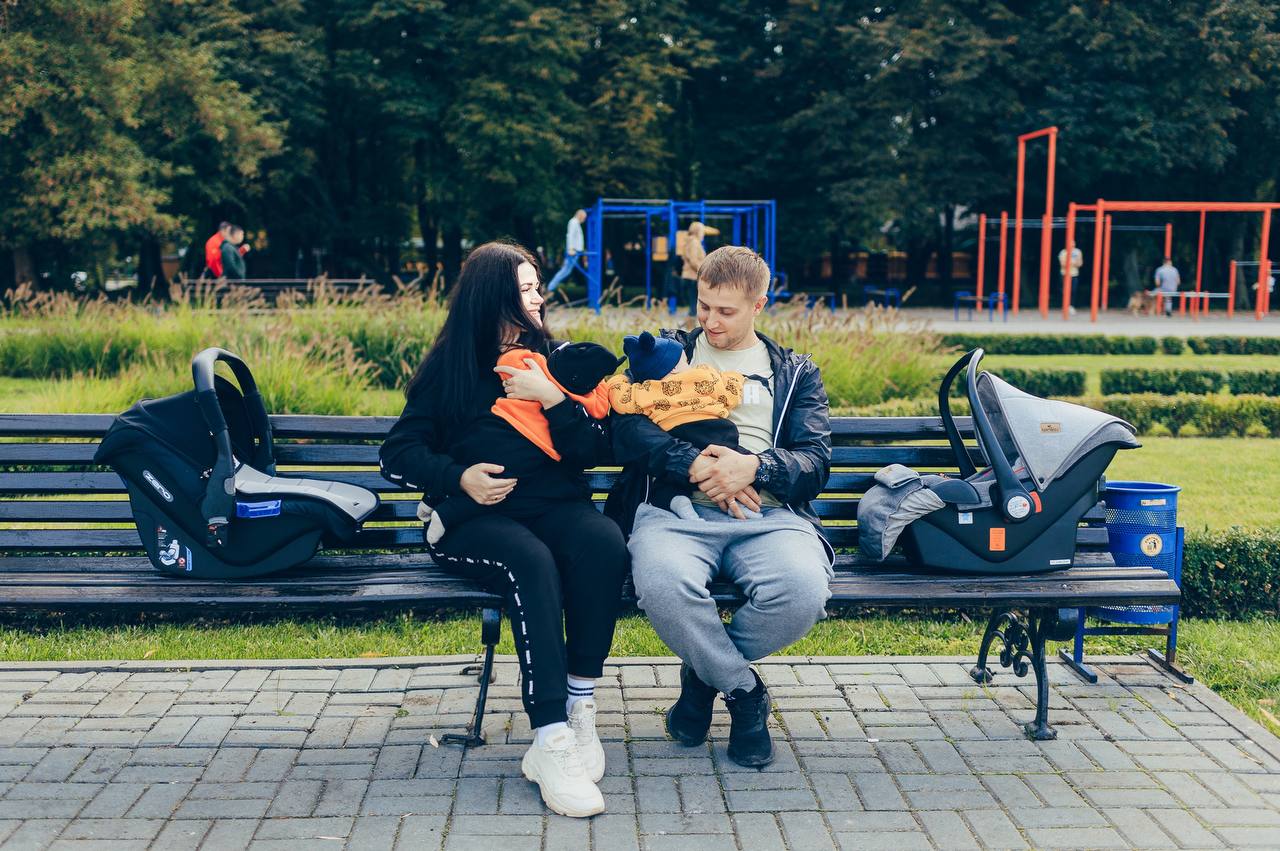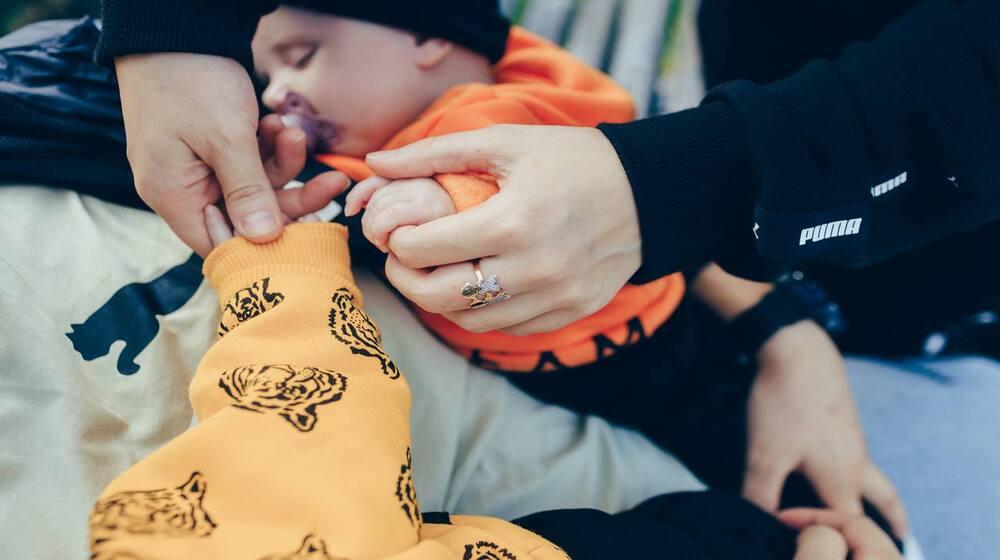A big wedding, a house by the sea, a family business. Before the war, these were the plans of Anastasiia, 27, from Berdyansk, near Mariupol in southern Ukraine.
She found out she was expecting twins two months before the Russian invasion. The news came as a shock, because she had not planned to have a family so soon.
Her and her partner decided to get married in early February and have a wedding later as both Anastasiia and her husband are in the military and he was ordered to serve in another direction. Anastasiia with her dog stayed at home in Berdyansk.
On February 24, she woke up to the sound of explosions. “I immediately realized what was happening," she said. Anastasiia filled her car with essential supplies and withdrew cash but decided to stay in the city.

One month under occupation
Russian troops occupied Berdyansk in a matter of days. The humanitarian situation in the city deteriorated quickly. According to Anastasiia, the gas and the heating were immediately cut off. The blackouts started later on.
"During the first days, everything was sold out in the shops. There was nothing to buy,” she said. “Only products from the local sausage factory were sold in the stores, but I do not eat that. So I ate ice cream and drank tea. Sometimes, when a neighbour gave me a few potatoes, I cooked soup. I was very lucky with my babies because I was in good health. It was as if I was not pregnant at all."

17 hours of driving through 18 checkpoints
In late March, when Anastasiia was six months pregnant, she decided to leave the occupied city as she could not find the medical care she needed.
"I could not stay, but there were 18 Russian checkpoints to go through to get out of Berdyansk,” she said. “I collected my thoughts and decided to drive out of the city by car. They searched me at all the checkpoints, but they did not notice that I was pregnant—probably because I was so thin.”
After driving alone for 17 hours, and crossing a minefield, Anastasiia finally reached the city of Zaporizhzhia, where a friend joined her. From there, she travelled west to the city of Khmelnytskyi to visit her husband's family. She was advised to go to the regional perinatal centre – one of the hospitals supported by the United Nations Population Fund (UNFPA).
In cooperation with the EU and other partners, UNFPA supports maternity hospitals in Ukraine to meet the needs of pregnant women, expand access to free and quality reproductive health services, and provide hospitals with essential supplies. Since the beginning of the war, UNFPA, in particular within the current partnership with the EU, has provided over 100 tons of equipment and medicines, including sterile gynaecological examination kits, surgical equipment, medicines and consumables. Due to the war in Ukraine, access to reproductive health services can be limited, affecting the health of pregnant women and safety during childbirth.
"Hospital staff immediately registered me, connected me with a doctor, and did all the tests, ultrasounds and screenings that I needed,” said Anastasiia. “The babies were fine. After that first visit, I knew I would give birth there.”
Just before childbirth, Anastasiia went to the pregnancy pathology inpatient department because one baby was receiving less oxygen and nutrients.
“They did a cardiotocography twice a day to listen to the babies' hearts. Also, I got vitamin drips. The doctors constantly checked my blood for glucose, haemoglobin, Rh factor and all the standard indicators for pregnant women,” said Anastasiia. "I received the results very quickly because on almost every floor of the centre there is a laboratory. The medical care is of a very high standard and absolutely free of charge."

The twins are born
For medical reasons, Anastasiia was advised to have a caesarean section. She chose June 17 as the date of birth for her babies. Her husband was able to join her for that day, although he had to go back to the war after childbirth.
"It is very important that we were together with the children from their first day of life," said Anastasiia. "Dr. Larisa Viktorivna Prytulyak visited us to see that we were doing well - she has helped a lot of women and children and has saved critically ill babies. When we left the hospital, we were given huge packages of nappies and clothes for the kids."
Now, Anastasiia's sons are four months old. Although she finds it challenging to take care of two babies, her relatives and husband, who is currently with the family for health reasons, share in the responsibilities.
“We had to endure so much,” she said. “And my sons have withstood everything. We must stay strong for their sake. Because children are our future, they replace those who, unfortunately, passed away.”


